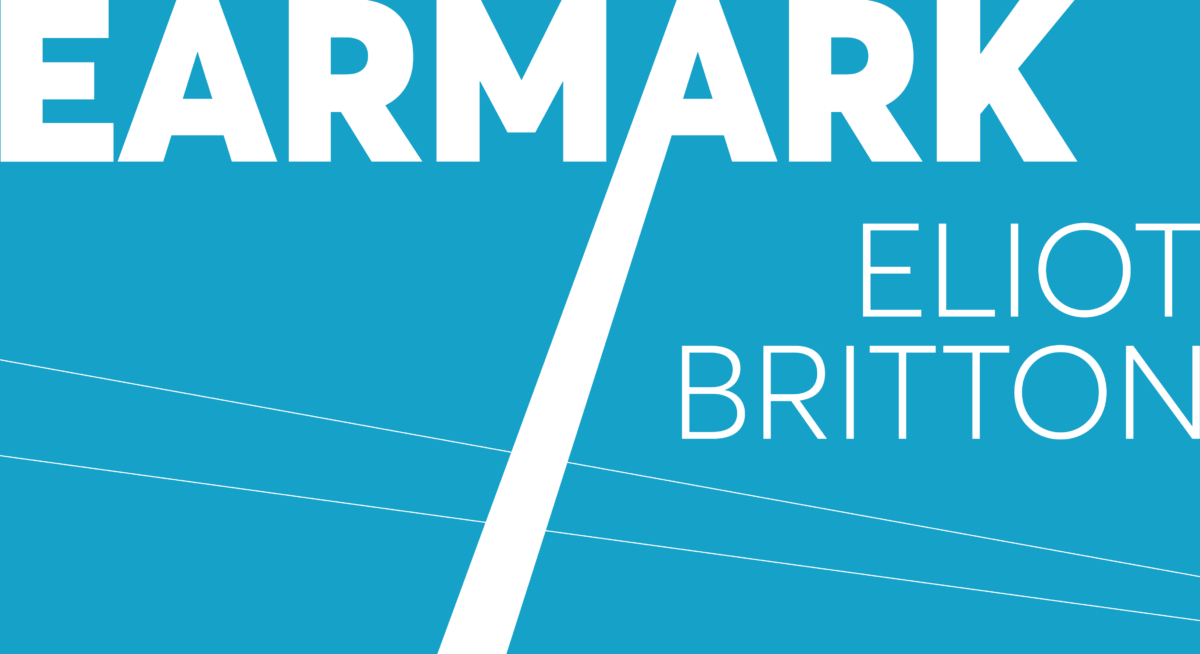In this edition of Earmark we hear from Eliot Britton about finding your place across various communities, the side benefits of shifting audio formats, and the unexpected emotive playing of James Ehnes.
CMC: What got you excited about music at a young age?
Eliot Britton: According to my parents I was an extremely musical kid, even at a very young age. However, not in a standard piano / violin / theory lessons kind of way, but more a play-two-records-at-the-same-time-and-rock-back-and-forth-in-a-corner-in-the-basement kind of way. I also used to disassemble any toy I could get, and often they wouldn’t sound the same when I put them back together. I would get fired up about minor mode Bach, video game music, disco, synthesizer music, soundtracks, a random assortment of masterworks vinyl, very strange records that I wish I didn’t destroy. The soundtrack from Amadeus was a favourite. Any of the records that were abandoned by my parents’ friends would end up in the basement, where I did my thing. It was the mid 80s and everybody was getting rid of vinyl, and moving towards tapes and CDs. I benefited tremendously. Later it was boys’ choir at Brandon University, and by age 13 I was already doing my best to produce dance music with my parents’ computer and a tape player. Once I started building my own computers everything began progressing more quickly.
CMC: What is an important music concert/event you attended?
EB: Apparently when I was really young I saw a young James Ehnes play a concert at Brandon University where I became inconsolable because the music was so sad. My parents had to drag a weeping child away and have a discussion about how sad music didn’t necessarily mean something bad had happened. As a teen I was invited by T. Patrick Carrabré to the Winnipeg New Music Festival where my mind was blown multiple times by a number of composers and the WSO. Later, in my 20s my mind would be blown by the MUTEK and Akousma festivals in Montreal, not to mention the endless stream of incredible electroacoustic composers coming from l’Université de Montréal.
CMC: What have you been listening to lately?
EB: I’ve been listening to K-pop / J-Pop, (Black Pink -Lets KILL THIS LOVE / Kyary Pamyu Pamyu – HARAJUKU IYAHOI) Also, early music: Thomas Morley ‘Now is the Month of Maying’ Crumhorn Consort. I don’t know if a K-pop or Crumhorn concert is more intense, but I definitely use these ideas in my music.
CMC: How do you define your musical/artistic community?
EB: I spend a great deal of time working on supporting new music in Winnipeg and Toronto in various aspects. As a former ED of GroundSwell and current artistic co-director of the Cluster Festival I feel like I participated a great deal in Manitoba’s contemporary music community. Here in Toronto my energy goes towards supporting my students at the UofT Faculty of Music. I’m slowly getting out into the Toronto community, meeting people and figuring out where I can help / fit. I am definitely a multi-community kind of person, as I like to be part of different and contrasting communities.
CMC: Tell us about a project of yours that you are particularly proud of.
EB: The music and electronics for the Adizokan project was a challenging but rewarding experience. It allowed me to write a large scale work for the Toronto Symphony Orchestra and collaborate with a number of indigenous artists and creators, specifically Sandra Laronde with RedSky and Nelson Tagoona .

